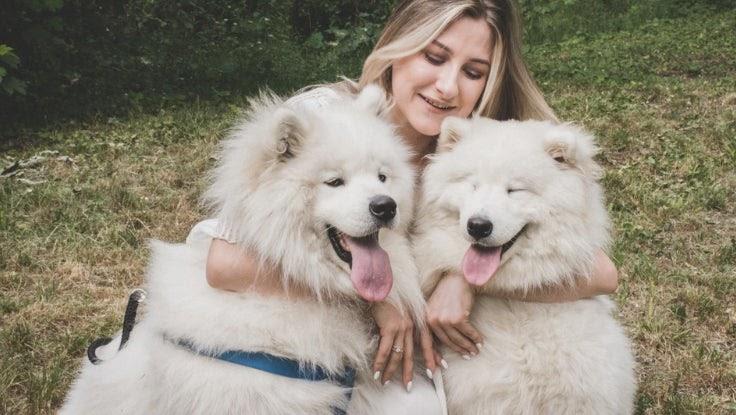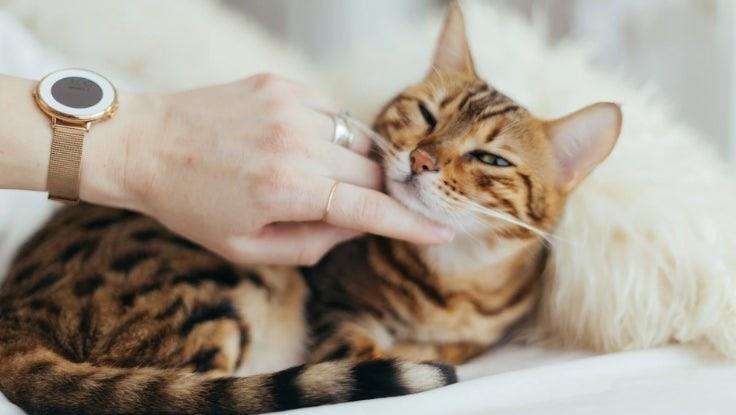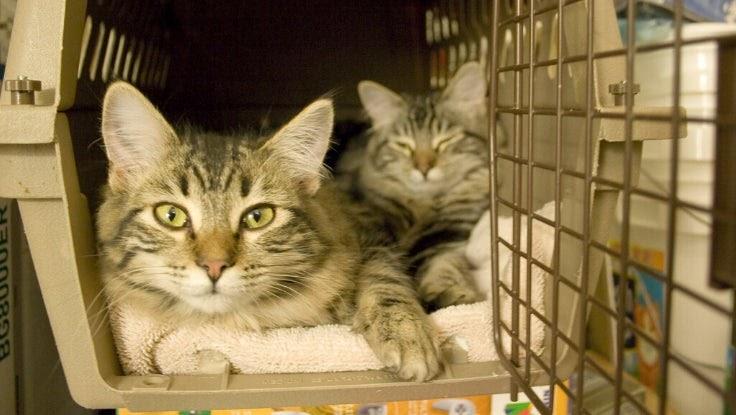
There’s a growing body of information now about how to protect yourself and your family from contracting COVID-19, but what about your beloved pets? Animals have tested positive for the virus, including several lions and tigers at a New York zoo and, more recently, larger numbers of mink in farms across the United States and Europe. When it comes to pets, two cats from New York and a pug from North Carolina tested positive in the earlier days of the pandemic, and overall “a small number of pet cats and dogs have been reported to be infected with the virus in several countries” aside from the United States. However, the number of cases has remained low enough that the CDC says pets and animals likely don’t present a large risk of spreading the virus that causes COVID-19.
Many health and animal experts still emphasize following extra precautions to protect our furry companions — it’s better to be safe than sorry, especially because the risks of transmission remain somewhat unknown. And in this “new normal” we’re adapting to, taking care of our pets is starting to look a little different. Here’s how you can keep your pet safe and healthy while navigating the COVID-19 pandemic.
The Best Times to Wash Your Hands — and Your Pets
With newly discovered infections occurring on mink farms across the world, experts are still learning more about whether the possibility exists for infected animals to spread the novel coronavirus to humans. However, there’s little other information available about animals spreading the virus and no confirmed cases of pets transmitting it to their owners. With that in mind, it’s always a good idea to wash your hands before and after you touch your pets. Bacteria and fungi that live on animal skin, fur or hair can still make you sick, and you don’t want to risk potentially transmitting the virus if you’re asymptomatic. It’s also important to wash your hands before and after handling pet food and supplies.

While your hygiene practices have probably improved dramatically since the pandemic began, your pet’s hygiene routine stays the same. Experts don’t recommend giving animals extra baths because it can dry out their skin and lead to other health issues. The CDC also notes that there’s no evidence pets’ skin, hair or fur can transmit the virus, and that owners should not wipe or bathe pets with “chemical disinfectants, alcohol, hydrogen peroxide or other products, such as hand sanitizer, counter-cleaning wipes or other industrial or surface cleaners.”
Opt to Go Outside Under Certain Conditions
Although it’s safe for you and your pet to stay at home together if you’re continuing to shelter in place or work remotely, it’s encouraged to get some exercise outdoors if your region allows it. Walking your dog can help relieve some stress and anxiety. Plus, it’s good for your and your pet’s health. However, there are some guidelines you should follow.

You should only spend time outside if you’re feeling well. When you go out with your dog, make sure to keep it on a leash at least 6 feet away from other people and animals. The best way to avoid running into people and animals is to find the least-populated dog parks or public spaces.
When it comes to cats, keep them indoors to prevent them from coming into contact with other animals and people — don’t let them roam outside. If you have several pets in your household, it’s fine for them to interact with each other. It’s also worth noting that you should never put a mask on your pet because it could harm the animal.
Stock Up on Ample (Not Ridiculous) Amounts of Food, Medicine and Supplies
As you maintain a stock of supplies for yourself and your family to limit your trips out shopping in public, you should also plan to buy more essentials for your furry pal. If your pet takes medications, pick up a 30-day supply of each one. It’s also a good idea to get two weeks’ worth of food for each animal you have.

Food and medicine are important parts of an animal emergency kit. Some other essential supplies to keep on hand are water and pet carriers. For dogs, it’s a good idea to have enough plastic waste bags to bring along on walks. For cats, you may need more litter and a litter box if you don’t already have one, particularly if you’re planning to transition outdoor cats into indoor living to keep them safer.
What Happens If You Get Sick?
If you’re sick due to COVID-19 and need to take care of your pet, you should keep practicing good hygiene and wear a mask around the animal. You should also limit contact with pets as much as possible, which means no touching, cuddling or receiving kisses and licks. This includes keeping your pet off your bed and not sharing food.

It’s best to designate another person in your household to look after your pet if you get sick or need to stay at the hospital for medical attention. It’s better to prepare for worst-case scenarios. Sadly, as more people succumb to the virus and infection rates continue climbing, more pets are ending up in shelters. However, having an emergency plan can safeguard your pet against abandonment.
If you don’t have someone in your household who can assist with pet care or a potential adoption, you could also ask a family member, neighbor or friend to watch your pet while you recover. Make sure you have a backup plan. Once you find someone, prepare to give the caretaker the following supplies and documents for your pet:
Medicine
Food
Toys
Leash or harness
Collars
Carrier
Care instructions
Updated tags
Microchip information
Medical records
Veterinarian’s phone number and information
Your contact information
What If Your Pet Gets Sick?
COVID-19 testing for animals is uncommon, and experts don’t advise going that route. Although cases of people spreading the virus to animals do exist, there’s not enough evidence of animals spreading the virus to humans to fully determine the risk of this transmission taking place.

If your pet gets sick, the best option is to contact your veterinarian to explain the situation — don’t head to the facility without calling and speaking with someone first. If you’ve been sick, let the vet know that you have (or have recovered from) COVID-19 and that your pet has become ill. Then, await further instructions. Your local clinic may offer telemedicine consultations that allow you to speak with your vet via video-conferencing software from the comfort of home.
During the pandemic, some vet clinics may have limited services, hours and availability. These clinics are also following enhanced safety protocols to protect human and animal visitors, so expect some changes from your normal visit if your vet does ask you to appear in person for an appointment. Once you speak with the veterinarian, you’ll learn more about what you can do to take better care of your sick pet.






